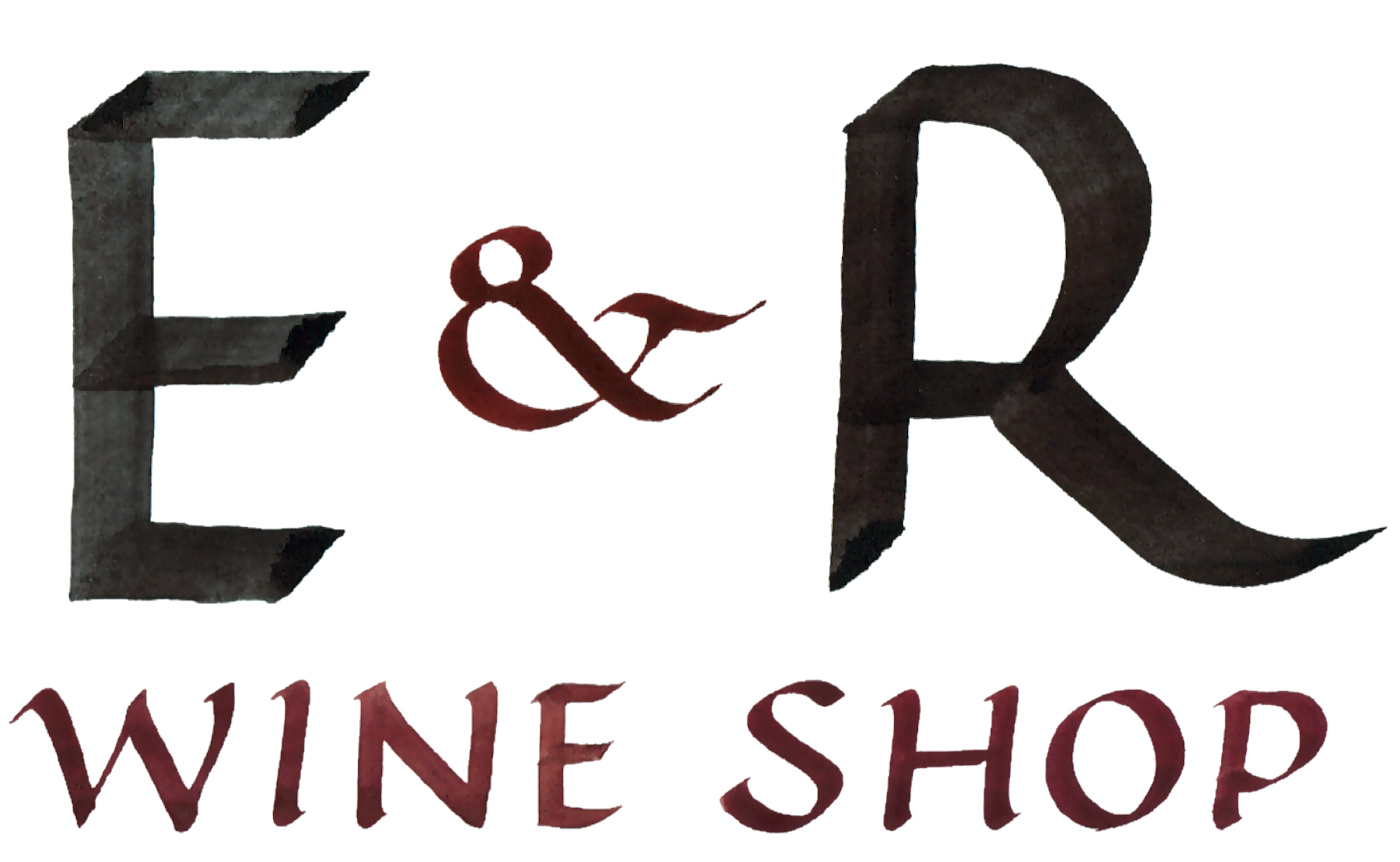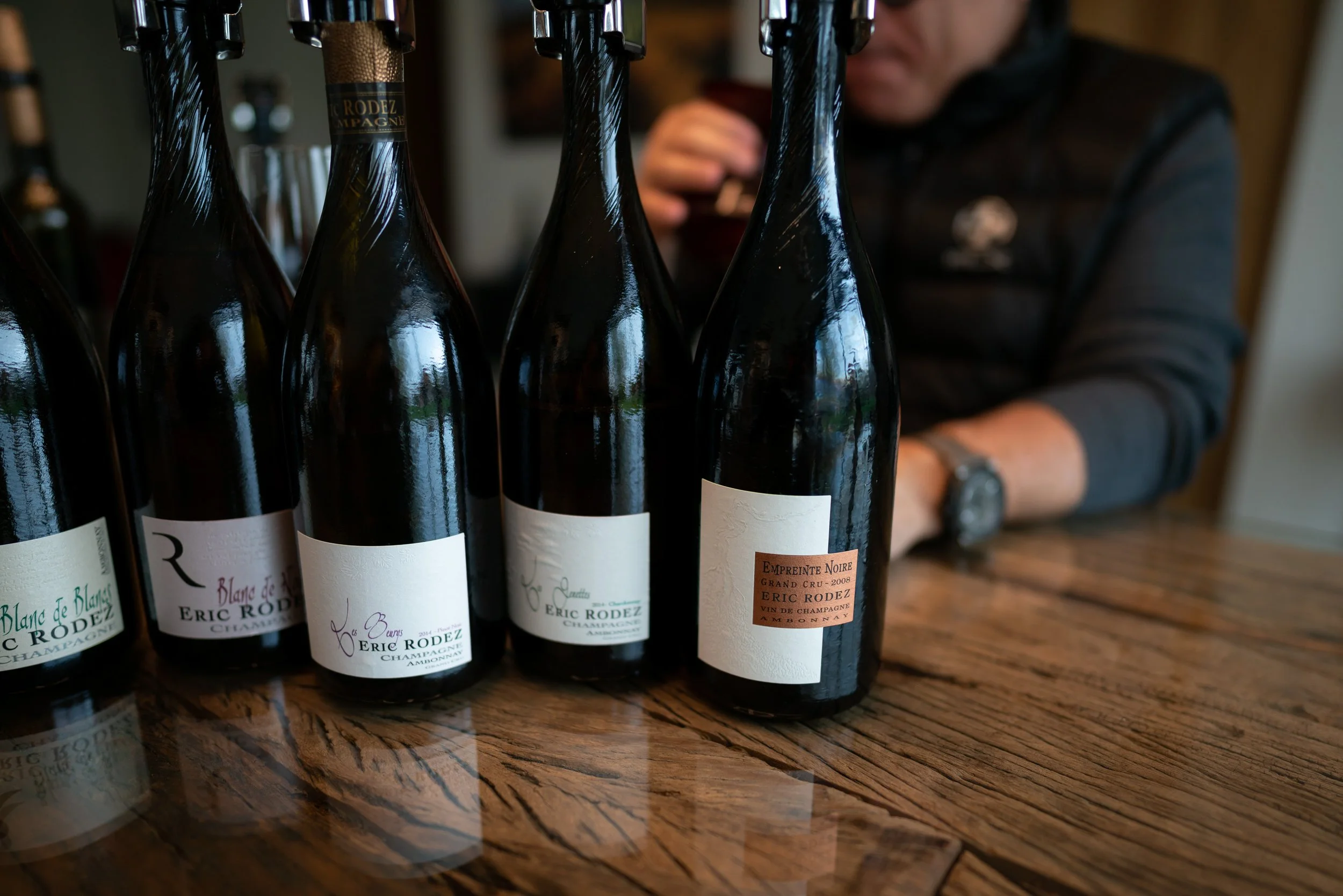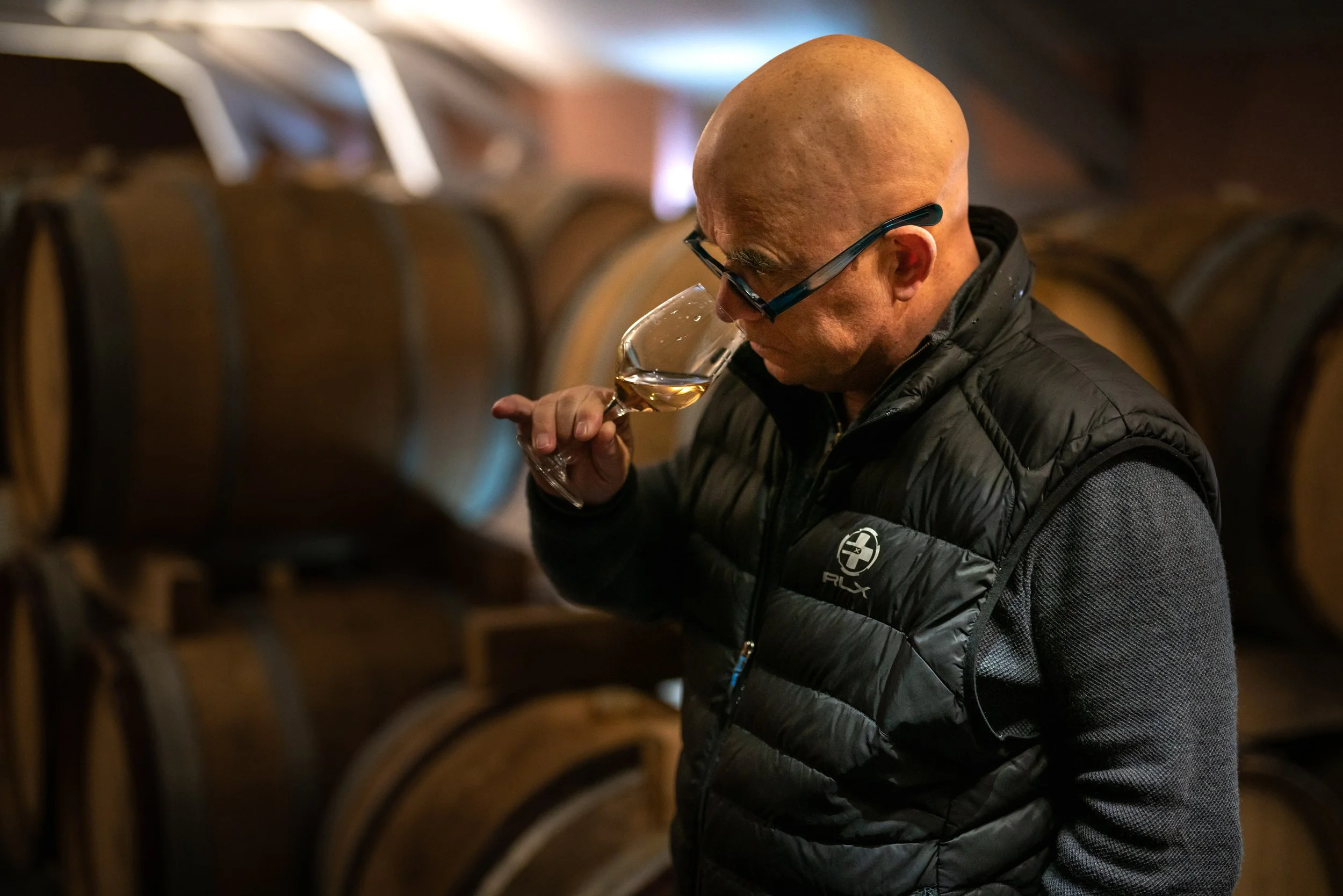Eric Rodez - Ambonnay, France
Photo by our Alex Fortson @ftnwcreative during our last visit to Champagne in April 2022.
MONSIEUR RODEZ OF AMBONNAY
It is always a fascinating, educational and compelling visit to Ambonnay if you can stop in and spend some time visiting with Eric Rodez. Part Professor, part wine-making genius and often a sharer of philosophical views on things in Champagne and the rest of the elsewhere. As our notes below expand on, the bottom line is the Rodez wines are wonderful, serious and worthy of your glass. The shop is thrilled just now to be introducing a whole new set of Eric’s wines direct from his warehouse to us here in Portland.
From 2017:
One might not think writing about wine can inspire ideas seemingly unrelated to grapes, wines or the people making them. Over time we've found it can and does - there is a kind of wild magic involved in how wine relates to many other things. You know?
Several of the brightest people we know are winemakers. The "greatness skill set" of the top of the field is far deeper than meets the eye. Our most recent visit to Ambonnay to talk and taste with Eric Rodez was thrilling, rewarding and enriching. We came away flabbergasted by the balance, power and beauty of his wines and highly encourage you to add these wines to your table and cellar.
Earlier in 2017 we offered the amazingly wonderful grower value wines from Pascal Doquet and Benoit Lahaye. While they are pretty much unbeatable, these two wines from Eric Rodez offer an important difference taking value to a new level. There is a magical element - these are blends respectively of vintages 2012, 2011, 2010, 2009, 2008 and 2012, 2011, 2010, 2009, 2008, and 2007! For all one's greatness, when produced by an absolute Master, the combinations of vintages adds a more profound depth and richness not often found in other offerings, and certainly not at these prices.
Lastly, it is worth noting all of Eric's fruit is from his own 6.5 hectares, all is from Ambonnay, all is Grand Cru and all his vines are farmed organically. Eric began his work in 1984 and works natural fermentations, uses aromatherapy in his vineyards, and is his own man - noting sometimes one can get "imprisoned in the logic of the process." This is smart man working his craft to the bone to produce the finest Champagne reflecting his beloved Ambonnay.
The lineup from our last visit to Ambonnay in April 2022.
From 2012:
Ambonnay, France (Grand Cru)
Greetings Champagne fans,
We have an exciting introduction to make! As most of you know, I have traveled to Champagne several times over the last few years. The purpose of these trips is multidimensional, with an emphasis on learning more about the wines we know we like, and finding more of the kinds of wines we love. There are over 15,000 grape growers in Champagne - based on the great selection we already have in Oregon and at E&R, it would seem that a single trip to a region with so many growers would uncover good stuff left and right, but the reality is exactly the opposite. As it turns out, there is a lot of CRAPPY Champagne in Champagne!
One of the major conversations in modern day wine is about terroir and the vineyards: "It's all about the work done in the vineyards." Whether they sincerely believe it or not, this is the most common tag-line of winery sales and marketing teams all over the world. In the region of Champagne, nothing could be further from the truth. The region is rife with problems - at least from the perspective of those who care about fine wine - and the problems are entirely accepted.
First, there is the Big Brand phenomenon. I will not spend too much time on this, but take into account that while the big houses own just 10% of the 34,000 hectares of planted land, they produce and sell 70% of the region's wine! The system is set up to encourage small growers to sell to the big houses and to do so without regard for quality work in the vineyard. They can work cheaply and make money, and the big houses are happy with the arrangement, because, quite frankly, most of their wine does not need to be great and it doesn't take high quality fruit to make mediocre wine. With production levels as high as 25 million bottles annually, marketing dollars are cheaper and easier to come by than quality labor in the vineyards.
One quick drive through the vineyards of the region will easily rebuke claims that any greater than 5% of Champagne growers give a flying Champagne cork about terroir. Sure, they love to tout their Cru status when they can, but, shamefully, a Grand Cru vineyard can be as badly neglected as any that are unclassified. Take a look at the group of Champagne growers that have risen to the top of the pack in the last 1-2 decades; some of our favorites, such as Jérome Prévost, Cédric Bouchard, David Léclapart, Franck Pascal, Bertrand Gautherot/Vouette et Sorbée, Emmanuel Lassaigne and Ulysse Collin - none of them own Grand Cru vineyards. Their wines are better and more expressive of where they come from than the large majority of designated Grand Cru wines not because the classifications are meaningless, but because growers with unclassified vineyards cannot rely on the power and prestige of being able to claim that their wines come from some place extra special. The good growers simply work harder!
Eric and his barrels.
AMBONNAY DIRECT TO OREGON
A little over a year ago I met a grower in Ambonnay named Eric Rodez. Ambonnay is one of the most well-recognized and respected Grand Cru villages in Champagne, and it is one of the least disappointing in terms of growers rising to the occasion, ie. making good/great wine with their blessed terroir vs throwing it away! Notable names here include Egly-Ouriet, De Sousa, André Beaufort, Marie-Noëlle Ledru, and Krug's $5,000 dollar bottling, Clos Ambonnay. (Anselme Selosse and another, yet to be announced star on the way, have a vineyards here too.)
I have books full of notes from my Champagne visits - we're talking 3 to 4 visits per day for 10 or more days straight on multiple occasions, plus numerous day-long tastings with hundreds of Champagnes from 20+ growers per day. For E&R's "Almost Direct Import" program's strict standards, Eric Rodez rose to the occasion. I left from my first visit with him giddy and physically struck by the wines, literally pulsing inside with excitement over them. Peter Liem was traveling with me that day and as we discussed the graceful power of the wines and what made them so beguiling, he said, "Rodez is the grower version of Krug". It was a perfect summary.
THE DOMAINE OF ERIC RODEZ
Eric Rodez, also the mayor of Ambonnay (!), is the 8th generation to run his family's domaine. As a small Champagne estate that has made its own wine for generations (rare), Rodez was obviously raised with a great amount of knowledge pertaining to his profession, but he also journeyed away from the family domaine to learn. After spending three years working in Burgundy, he returned to Champagne to work as an enologist at a "highly respected negociant", which I learned later - and only after asking - was Krug. He valued his experience at Krug for teaching him the importance of blending, and how to properly work with oak, but when he returned to the family estate he became disillusioned, recognizing that his training had not prepared him to work with mother nature. He eventually decided to go to Alsace to learn how to make better wine, with the emphasis being in the vineyard. When he returned in 1989, he began the transition in the vineyard away from synthetic and chemical treatments, toward a more organic approach.
The thing that struck me the most about Rodez after my first visit with him, other than the wines, was his concern about the current state of Champagne as a region. In his words: "The 'Big House' mentality is very dangerous to the region...there are lots of bubbles in Champagne today, but no music." He also refuses to accept the status quo, and possesses an incredible will to persist, comparing his path to a long upward-climbing circular staircase It's a process of discovery: "five years ago I did things I don't do anymore, and in five more years I may not be doing what I am now." For instance, he believes that organics and biodynamics do not have all the answers, so while he is certified organic and utilizes some biodynamic methods, he also looks for what might be the next better (chemical-free) solutions.
Some are building monuments, others writing down notes…
In October I visited his vineyard with him just after harvest and he explained that while the vineyard we were standing in (his) produced 13,000 kilos/hectare in 2011, the one we could see just across the street churned out 30,000 kilos/hectare! With a disillusioned look he kept throwing up his hands exclaiming, "It's CRAZY! WHY? WHY?" and then answered his own question, "It's not difficult to work organic, it's just difficult for the money. They have money in their wallets, but none in their hearts - no passion, no pleasure." Of the 34,000 hectares of vineyards in Champagne, 265 are certified organic. Chemicals are quick, easy and cheap. Most of the growers are not making their own wine, so they do not care, and they do not get paid by the quality of the fruit, but rather by quantity. Excess grapes can be seen hanging on the vines after harvest because the yields were so high that some of the grapes were useless. Sadly, these over-cropped, under-ripe grapes - and subsequently, overly sugared wines - are what produce the majority of Champagne consumed around the world, and consumers pay significant dollars to drink it. As Rodez puts it, "big producers have to create 'emotion' <by manipulating their wines and by marketing> because there is no terroir <with this method of farming>." He's right, it's CRAZY!
IT ALL STARTS IN THE VINEYARDS... BUT IT DOESN’T END THERE
(eric with his son mickael, the next generation)
While Rodez is constantly seeking the best way to work in the vineyards, the work in the cellar is also uniquely important and thrilling to him. Krug's hallmark is their arsenal of reserve wine, and Rodez has applied the same technique to his wines. He has 60 different reserve wines spanning a decade of vintages, all kept separate. They are separated by varieties (Pinot noir and Chardonnay only), parcels, vintages, tank, wood, malo, and non-malo wines. He believes the concept of blending is central to the tradition of Champagne, but his goal is the same as it is in the vineyard: not to manipulate the wines, but to enhance their individual personalities. He wants the wines to maintain consistency. Drawing on a comparison to a classical musical performance, he says, "the song and the melody is always the same, but each vintage brings a new set of emotions and experience to the melody." Acidity and a delicate, lacy, mineral finish are important components of all of his wines, and he is able to maintain this character of his Ambonnay terroir through well-executed blending.
Even though I already know what to expect going into it, I am always surprised by how stunning his entire family of wines is each time I taste with him. Across the board they are dense yet airy, delicate yet powerful, always complex and finely layered, and the long "lacy" mineral finish gets me every time. They may be stylistically reminiscent of Krug, Selosse, or Bollinger to some tasters, but they are entirely their own expression; uniquely elegant and never aggressive. Compared to the three aforementioned Champagne houses, and ANY other grower currently recognized for high quality, the wines of Eric Rodez are knock-out values. Each wine is comprised of no less than 4-5 vintages (except of course for the vintage wines) with reserve wines spanning five to ten vintages, all 100% Grand Cru and with 3 to 5, 7 and even10+ years on the lees before being disgorged and sold. The range of wines is wide (and deep) and because they are all terrific and all stand alone, it's impossible to rule any of them out.
(SS)
When in stock, wines from this producer appear below. Click on each wine for more detail.






